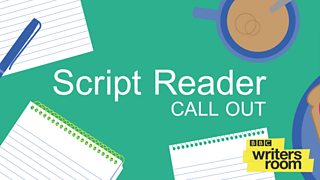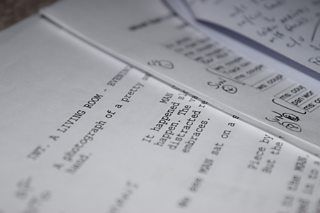Here at ±«Óãtv Writersroom, we are frequently asked about our script reading team – who they are, what they do and how they assess the many thousands of scripts that come into the ±«Óãtv every year. We take enormous pride in how experienced our readers are and I am consistently impressed by the care and attention that they put into assessing and judging the work of our hard-working writing community.
Very soon we are launching a search for new readers. You will see that we are asking for very demanding standards. This includes at least three years’ previous experience as a reader. We know that this will be disappointing for many people who are keen to make a first start as a reader, so we wanted to give you some idea of how and where to begin if you are earlier in your reading career.

What is a Reader?
The core requirement to be a reader is great editorial judgment and the ability to discern writing talent and potential. This isn’t always easy – sometimes a script is perhaps less well-structured than one would wish; sometimes it is not to your taste – but nonetheless has great potential; perhaps it is just poorly formatted – but a good reader will be able to see past all that to get an accurate idea of the writer’s strengths and originality.
Who becomes a Reader?
Very often the job of reader comes at the start of a career in the editorial side of Drama development and production. A great many producers, writers and script editors, working on some of the best dramas around today, began as readers; and many people – no matter how advanced they are in their career plan – return to reading from time to time, simply because they have a passion for finding new talent. However, no matter which of these people you ask, most will tell you that it was very difficult to get their first reading job; so, I hope that we can give you some hints and tips on how to make inroads into working as a drama reader in the UK industry.
It is important to note that all readers work on a freelance basis – very few, if any, companies employ readers full time. So, you will find that anyone working as a reader will often be doing so for several companies; and many readers have a portfolio of freelance jobs which may complement the work they do as a reader.

Who Uses Readers?
Readers are employed by a broad spectrum of people and companies within the drama world – and this is your key to finding work: essentially, anywhere that receives unsolicited scripts may need their scripts assessing from time to time; they will then contract a reader or readers accordingly – dependent on how much work they have in their inbox!
Many companies within the theatre, film and television world use readers to assess work; this includes broadcasters, streaming services and independent production companies. Literary agents and theatres also employ readers from time to time – especially those with a reputation for developing new writing talent.
So how do I get started?
Getting started can be slow and – if I’m honest – difficult at times. You will need to put in some research about who employs readers and then start approaching those companies to express your interest. If you are very new to the industry, it will help if you are able to show a sample report based on a script you have previously read; this might be based on a piece of work that you have encountered personally; or you may want to take advantage of our script library and create one or two reports that best show off your skills. And while you are visiting our library, it’s worth noting that the more scripts you can read, the better you will become at seeing how they work: what is effective in action and dialogue; how great, compelling, believable characters are created; and how plot hooks keep an audience coming back for more. I cannot stress enough the importance of reading as many scripts as you can: the more you read, the better honed your skills will become.
How does a career progress?
Once you start to get your first reading contracts, you will find that you quickly get a reputation as a professional reader (if you’re good at it and you can deliver your reports on time!) and other companies will then be keen to get to know you and – as in other jobs – the more experience you gain, the easier you will find it to sell your skills to other companies.
Like many other jobs in the television industry, becoming a reader requires effort, talent, self-belief, patience and – above all – a great deal of persistence. But for those who start to get employment as a reader, it is often the start of a successful and satisfying editorial career.
Good luck and start reading those scripts!
